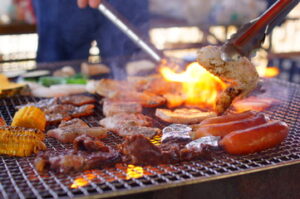Ceiling Repairs Perth help to revitalize spaces and ensure a safe living or work environment. It includes processes like patching and painting, water damage restoration, and removing outdated textures such as popcorn.

Regular inspections help to identify the early signs of drywall or plaster problems. Drying affected areas is crucial to prevent mold and microbial growth.
Cracks in the ceiling can be caused by a variety of things. Generally speaking, they are caused by water or stress and structural problems. If the cause of the problem can be identified and addressed, the cracks can be repaired. However, if the cause is not addressed, the cracks will most likely reappear.
If the cracks are very thin hairline cracks that have been there a long time, you may not need to do much more than re-tape them and repaint. Larger cracks, especially those that are accompanied by sagging in the middle of the ceiling, usually indicate serious problems that need to be dealt with. This could be as simple as having something too heavy placed directly above the ceiling, or it could be more serious such as foundation shifting or water damage to the drywall.
The best way to determine the cause of the cracks is to call in a professional drywall and painting contractor. They will have the expertise to know what is causing the cracks and how it should be fixed. They can also advise you of any precautions that need to be taken if the problem is more serious.
It is important to address cracks as soon as they are noticed, since ignoring them can lead to serious problems that could compromise the integrity of the structure of the home or business and potentially endanger the safety of those inside. It is especially important to get any cracks that are accompanied by sagging or other signs of serious problems dealt with immediately, as this will most likely require structural work to be done.
When repairing cracks in the ceiling, it is a good idea to prepare the area by moving any furniture that is in the way and covering it with plastic sheeting or drop cloths. This will protect the flooring from loose debris and wet mud and paint drips. You should also set up a stable A-frame ladder and practice ladder safety to prevent injury or accident while working on the ceiling. It is also important to wear a dust mask and eye protection, as working on the ceiling can create billowing clouds of dust that can lead to breathing issues in those who are not wearing protective gear.
Water Stains
Water stains on ceilings aren’t just unsightly; they’re often indicative of hidden plumbing issues. They can also lead to the growth of mold and mildew, and if left unaddressed, can result in rot and structural damage. If you discover a water stain on your ceiling, addressing it immediately can help reduce damage to your property and its contents, eliminate odors, and improve your home’s appearance.
There are a few key steps to take when dealing with ceiling water stains: first, identify the source of the problem and correct it. Then, clean the stained area with a mixture of bleach and warm water (following safety guidelines including turning off electricity and running water in the affected room) and allow it to dry. Then, using a high-quality oil-based stain-blocking primer in a color matching the existing ceiling, apply one or more coats, allowing each to dry thoroughly before applying the next.
Finally, once the stained area is completely dry, re-paint the ceiling to ensure that the repaired areas are blended in with the rest of the ceiling. Once complete, be sure to monitor the ceiling for future water stains and ensure that the leaks are not returning.
For the most lasting results, it’s best to consult a professional when repairing water damage on ceilings, especially in cases of large or persistent stains. They will be able to properly identify the source of the issue and recommend repairs that will prevent recurrence.
Regular maintenance of your roof, windows, and ventilation will also help to reduce the risk of water intrusion on your ceilings. Be sure to schedule routine roof inspections and repair any issues promptly, keep up with plumbing maintenance, ensure your gutters are working correctly, and use fans in the rooms where condensation occurs to improve circulation and eliminate odors. By regularly identifying and repairing cracks, addressing water stains, cleaning and priming, and repainting, you can extend the life of your ceiling and protect your valuable possessions. By monitoring your ceiling for hairline cracks, identifying and fixing water damage early, and following up with a long-term solution, you can maintain your property value, prevent structural damage, inhibit mold and mildew growth, and eliminate electrical hazards.
Plaster Damage
If you have a plaster ceiling that is damaged by water, it can be repaired to look good and stop mould growth. The key is to find and fix the source of the problem, and that may involve finding a roof leak, repairing plumbing, or removing water-damaged materials. Once the source is fixed, removing the water-damaged plaster and putting in new materials can help to stop the problem from recurring.
If the water damage is not too extensive, you can repair the plaster walls by sanding and repainting. If there are any divets or areas where the plaster has become detached from the lath, you can use wood strapping to reattach it. This is a temporary solution, but it works well. To make sure that the new plaster is secure, you can also use plaster washers and drywall screws, which are screwed into the wooden lath beneath it.
Water damage is a serious issue and can affect the health of you and your family, so it’s important to take steps to prevent it from happening again. Regular inspections are the best way to identify potential problems early and deal with them before they escalate. This can include identifying and fixing the cause of the water damage, restoring insulation, removing any mould, and refinishing the walls.
It’s recommended that you hire a professional water damage restoration company to perform these services, as they will have the equipment and expertise needed to restore the structure of your home, including your plaster ceiling. They will be able to quickly and safely identify the source of the water, remove any contaminated materials, and dry and treat the affected area. They can also repair any damage and stains caused by the water, and even refinish your plaster walls and ceilings.
If you’re tackling this project yourself, be sure to wear safety goggles and a dust mask, and cover any furniture or floor surfaces that might be affected by the work. Make sure your ladder or scaffolding is stable, and prepare the work area by covering it with drop cloths. Before starting, be sure to check that you have all the tools and materials you need, like plaster fixing paste, a putty knife, sandpaper, and paint for touch-ups.
Poor Installation
If your ceiling has cracks, stains, or holes, these are often the result of poor installation. These issues are easy to fix, however, it is best to have a professional handle them to ensure the job is done correctly and that your ceiling will be structurally sound in the long run.
Cracks, stains, and water damage are common problems that homeowners face. However, it is important to address these issues promptly to prevent larger and more expensive problems down the line. If left unaddressed, these problems can lead to sagging, bulging walls, and other structural failures that require extensive and expensive repairs.
A professional can inspect your ceiling for structural issues and address them right away to avoid costly repairs down the road. For example, if your ceiling has cracks, a professional can repair them by adding extra support beams to prevent further damage. They can also replace drywall panels that have been badly damaged by water.
Structural problems in the ceiling can be difficult to detect, as they are hidden behind drywall and other ceiling materials. They can be caused by a variety of things, including faulty plumbing, roof leaks, and poor construction.
Another issue that is frequently encountered in homes is sagging ceilings. These can be the result of poor joist placement, sagging rafters, or weak beams. If left unaddressed, sagging ceilings can lead to rot and other serious structural damage.
Performing regular inspections of your ceiling is the best way to keep it in good condition. You can look for signs of damage such as water stains, mold, or chipping paint, and have them repaired immediately. You can also take preventative measures, such as cleaning your ceiling regularly and repairing any leaks. When hiring a professional to perform ceiling repair, choose one that is licensed and insured, and has been in business for at least five years. They should also provide a free evaluation and detailed contract before work begins, and never ask for large deposits up front.

